Nine officers from the Royal Thai Navy acknowledged when they met Phuketwan reporter Chutima Sidasathian and editor Alan Morison in Bangkok that it was beyond the Navy's power to end the trial.
The Navy officers and the journalists met on Monday under the auspices of Thailand's National Human Rights Commission, which had previously talked with both parties separately.
Morison spoke first and told the gathering that the journalists' trial is scheduled to continue in Phuket Provincial Court in March next year.
Because the Phuket court has already suspended a visa that enables him to work in Thailand, Phuketwan will be forced to close in February, the month before the trial resumes, Morison said.
The closure of the small but influential Phuket online news site is likely to mean that the US State Department's TIP report will again criticise Thailand.
The military versus media law suit is unprecedented and, many NGOs believe, an attempt to silence reporting of the Rohingya issue.
The legal action by the Royal Thai Navy, together with lack of real transparency on how Thailand treats Rohingya, trawler crews and migrant labor workers, led to Thailand being demoted to the bottom level, Tier 3, in this year's Trafficking in Persons report.
''We regret what has happened because of this lawsuit,'' Morison said. ''A simple telephone call one year ago would have prevented the problem.
''It is a tragedy for Phuketwan, for the Royal Thai Navy and especially for Thailand that we did not meet as we are today to resolve this matter in July last year,'' Morison said.
He added that it was not part of the normal process in most democracies for the military to sue the media.
The Royal Thai Navy opted on July 17 last year to complain to Phuket police that the reputation of the service had been damaged in a Reuters news agency report, parts of which were republished the same day by Phuketwan.
Since charges were formalised in December, Morison's passport has been seized and he faces a maximum of 14 years in jail under criminal defamation and the Computer Crimes Act.
Khun Chutima, 32, faces a maximum of seven years in jail.
On Monday, the Navy representatives accepted that the paragraph that caused their anger originated with Reuters and was republished by Phuketwan.
So far only the journalists at Phuketwan, a small Phuket-based news outlet, have been charged. Police are proceeding much more slowly with a similar case against Reuters.
On Monday, when the Navy officers and the Phuketwan journalists met in private, Khun Chutima produced printouts from four Thai-language news outlets that had published the same Reuters paragraph, translated from English.
Those outlets have also not been charged.
Much of the discussion on Monday centred on the words, ''Thai naval forces.'' Those words form a key part of the contentious paragraph.
''Thai naval forces'' does not necessarily mean the Royal Thai Navy, Khun Chutima said, pointing out that many arms of the Thai military and even local police used grey-painted vessels to patrol the Andaman Sea.
Khun Chutima said that although she understood what she thought was intended, it was really up to the Reuters journalists, not Phuketwan journalists, to defend their paragraph.
The Thai-language translation of the 41-word paragraph presented to prosecutors by Phuket police mentions the Royal Thai Navy three times. The Royal Thai Navy is not mentioned at all in the original English version.
Although Monday's meeting achieved no obvious progress, Morison and Khun Chutima and several of the Royal Thai Navy officers acknowledged it was good to meet and exchange points of view.
Reuters subsequently won a prestigious Pulitzer prize and an award from the Society of Publishers in Asia for its Rohingya boatpeople coverage.

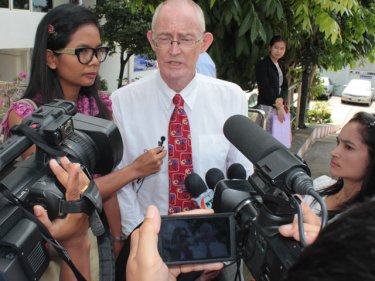
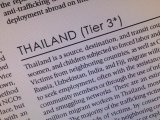



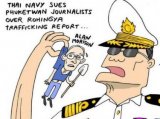












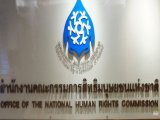
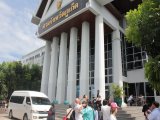











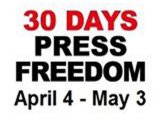

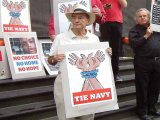








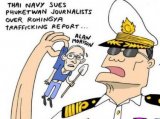
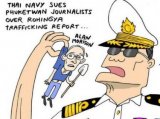
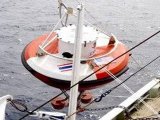
























Hm, if complainant can't withdraw compliant, then surely a prosecutor can who brought a charge. May be he/she should be invited to one more mediation meeting, again with Royal Thai Navy participating to avoid ping-pong..
Posted by Sue on July 10, 2014 00:10
Editor Comment:
Once made, complaints under the Computer Crimes Act cannot be withdrawn.